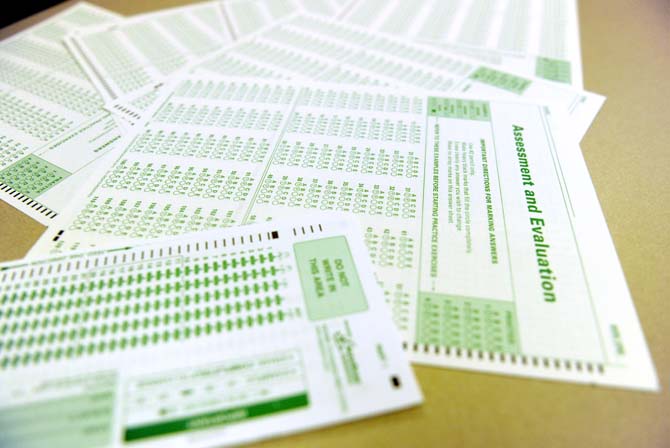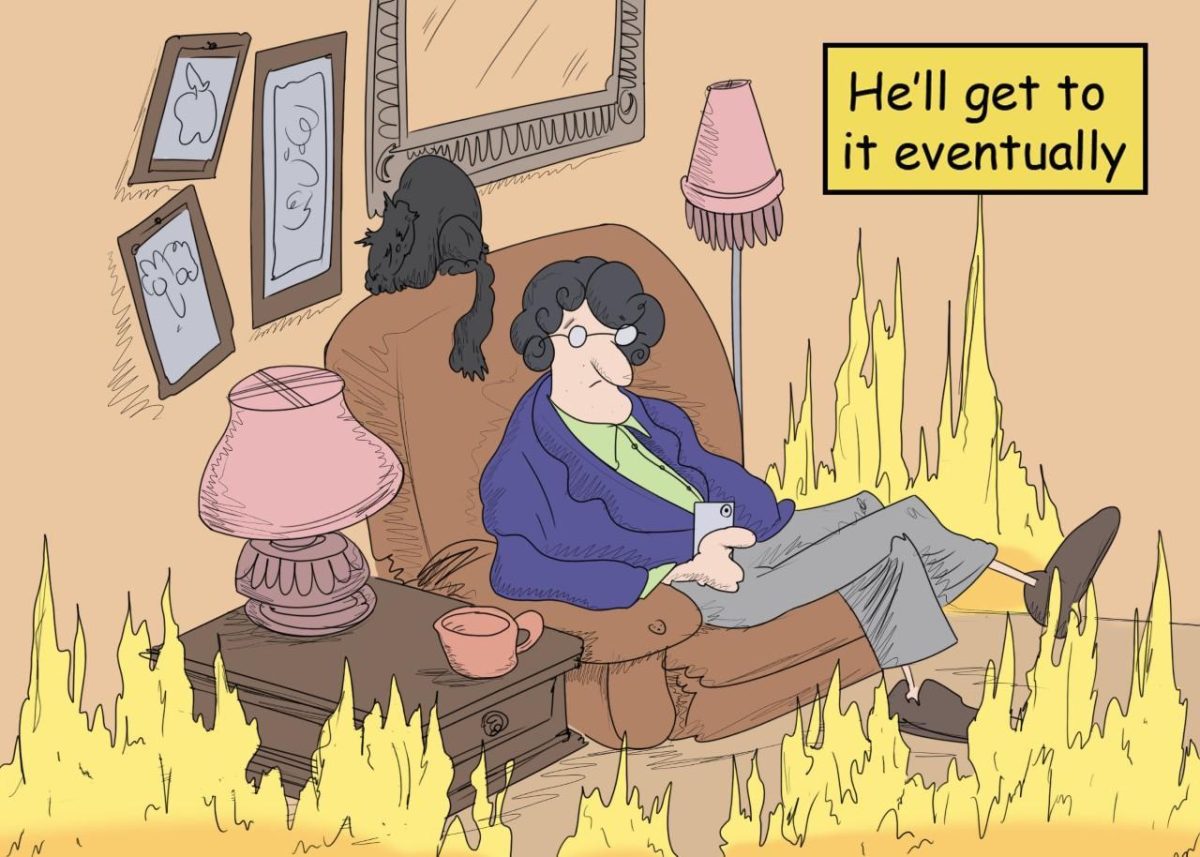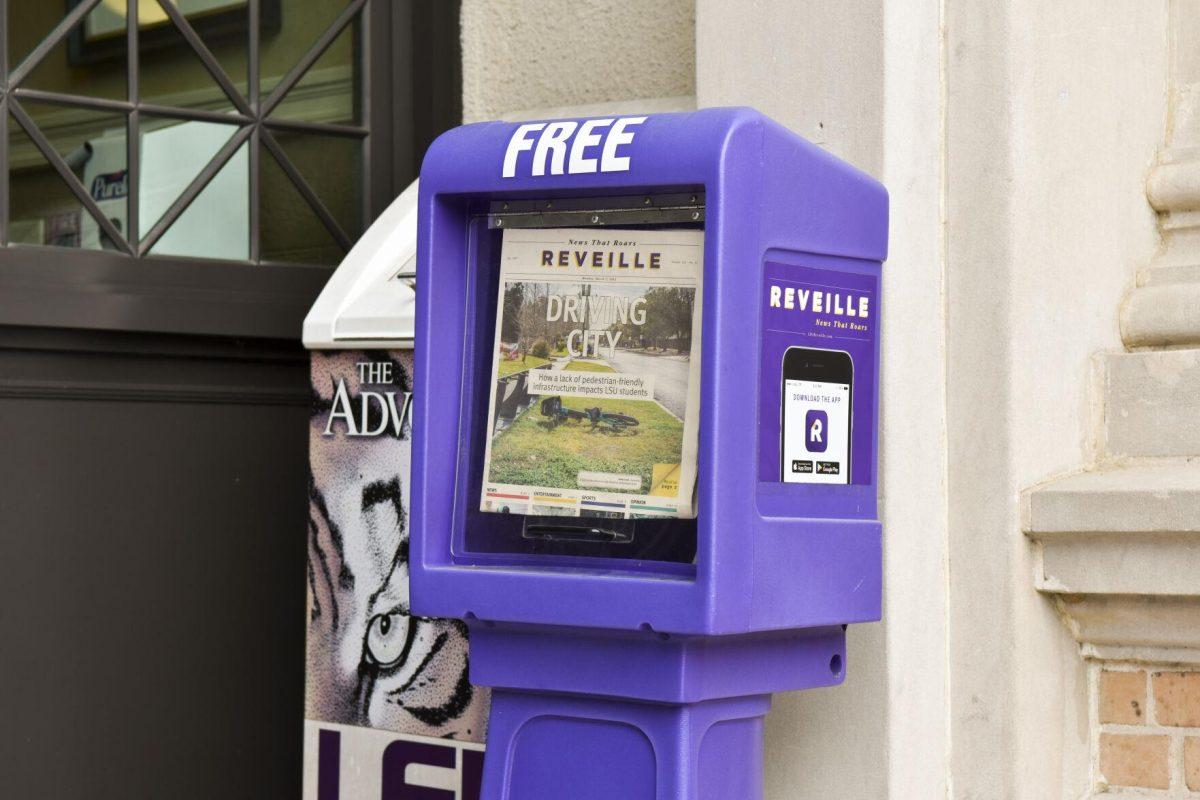The next five days are going to be some of the most hectic, challenging and frustrating days of our post-secondary lives.
But when you sit down in the testing center, remember that there are more important questions than the ones on the screen. And there are more important answers than the ones you write in your blue book.
Questions are not written in stone and should be questioned.
It is a rare day that we can raise our hands during an exam and question the questions themselves, but this is the most important thing you can do, and you should do it every single time.
My column this semester toted the hammer “The Box Does Not Exist” for that reason. Remember that the box, the social constructs, the lens that we’re used to seeing the world through — it doesn’t exist. It is entirely manmade and should be re-evaluated as we evolve.
As children, we were inquisitive about every single command, question and action that we experienced. Somewhere along the way, we started accepting “because that’s the way it is” when we asked why.
That’s where we’re going wrong.
If someone asks you if you are pro- or anti-porn, or pro- or anti-anything for that matter, ask yourself if you can fit your entire belief on the subject into a single, hyphenated phrase.
If you can, you aren’t giving enough consideration to the subject, or you’re discounting the specifics of your beliefs because you feel pressured to fit into one of two sides of an argument.
And then question why you are only being presented with two options. Question this often and for an impressive length of time.
Exams are not the end of the lesson, and quite often we will be left with more questions than we started with.
In college, we learn a lesson and then take an exam. In the George Zimmerman trial, we got a not guilty verdict and were left with questions.
Did the United Nations have grounds to call America racially biased? Should Stand Your Ground laws be taken farther than the front yard? Why did the media only show Trayvon Martin as either an angelic boy or a thug, when humans are more complex than that? If Zimmerman is found innocent, does that mean Trayvon is guilty? Does 24-hour reporting media hold any responsibility in the court rulings? Is it better to live a perceived white life, as Zimmerman did, than to be black in America?
And that’s not even half — no, that’s not even a one hundredth — of the questions we are still faced with.
Six jurors deliberated for 16-and-a-half hours, and at the end of it they had to vote guilty or not guilty.
And then they each had to walk away and, with the rest of the country, had to wake up the next morning and live with that ruling.
Right and wrong answers are going to be even harder to determine.
If you’re like me, you’re looking forward to the day grades aren’t hanging over you every second of the day. I’ll be relieved when that day comes and I can stop checking Moodle to make sure my GPA isn’t in danger.
The world doesn’t question you and then mark down the percentage that you achieved or give you a zero out of 10 for not showing up.
Sometimes, you’ll make decisions and never know if you were wrong or right — you’ll just have to live with them.
Sure, it would be easier if everything was universally applicable and we could go through life with a study guide full of notes.
But not knowing what is going to be on the exam and learning to think on our feet is the fun part.
As we trudge on through this hellish week, remember that our professors, teachers and fellow students are crucial in preparation to take on the world. And that world is in serious need of some questioning tiger graduates to change things.
Let’s give ‘em hell, LSU.
Opinion: Finals are not the biggest tests we will ever take
By Jana King
December 8, 2013
Scantrons
More to Discover










